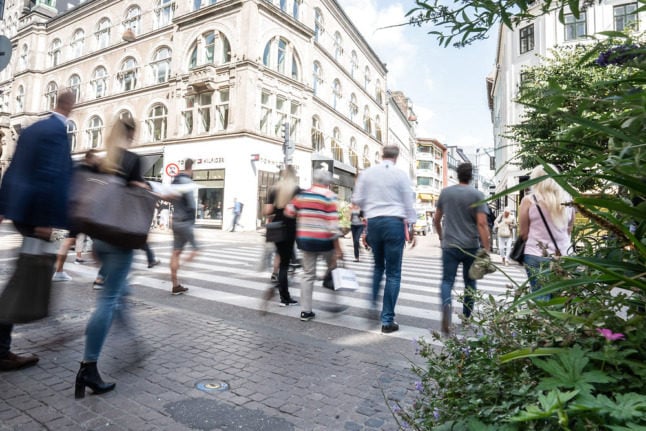In the video, recorded at Kastrup Harbour near Copenhagen, a man shouts at the family “why don’t you piss off to your own country” and “look at your skin colour, you’re yellow, you don’t belong here”, amongst other things. It can be viewed here on broadcaster DR’s website and has also been shared many times on Facebook and Twitter. The identity of the man has not been made public.
Politicians from all mainstream parties have condemned the incident, including representatives of the anti-immigration, populist right wing Danish People’s Party.
Jeg har set videoen, og sympatiserer med den lille famile, som bestemt ikke har fortjent dén behandling. https://t.co/zwohMhIUPL
— Søren Espersen (@espersendf) May 23, 2021
In a statement issued on social media, immigration minister Mattias Tesfaye said he was “sad” to hear about the video.
“But it was also great to hear how passers-by and the police dealt with the situation. Stop racism. Together for Denmark,” he added.
Social media commenters argued that Tesfaye’s party is amongst those to have fuelled racial tension with its strident rhetoric against immigration, often specifically from Middle Eastern countries. The tweet linked below, posted by Social Democratic immigration spokesperson Rasmus Stoklund, contains numerous such comments.
Stoklund, who expresses his sympathy for the family in the tweet and condemns the incident, is himself a divisive figure and was most recently criticised for including a picture of garden weeds in a Facebook post about foreigners in Denmark who have committed crimes, and whom the country wants to deport.
Urimeligt verbalt racistisk overfald mod denne familie. Hører ingen steder hjemme. Gode tanker til familien og især deres små drenge; jeg er ked af de fik så ubehagelig en oplevelse. De er en del af et stort fællesskab, som står sammen med dem. 1/3 https://t.co/gtsW6oOJv7
— Rasmus Stoklund (@RStoklund) May 24, 2021
The Social Democratic citizenship spokesperson, Lars Aslan Rasmussen, called the incident “clearly racist” in comments to DR, but said that Denmark was generally a tolerant country and denied Muslims were targeted by his party’s rhetoric.
“I don’t think we have a general problem with racism in Denmark,” he claimed.
That view was not shared by Pernille Skipper of the left wing Red-Green Alliance.
“All the politicians who don’t think we have a problem with racism but who also ‘sympathise with the family’ have simply not grasped how normal this actually is,” Skipper said according to DR.
“This is not an outlier – it was just captured on video,” she also said.
The mother from the family targeted in the video, Kodes Hamdi, told DR she was “tired of turning the other cheek and saying ‘never mind’ and moving on”.
“Because this isn’t the first time (it’s happened),” she added.
“I just needed my network to know how I’m being treated along with my children just because we have a different skin colour and because I wear a headscarf,” she said in reference to her decision to post the video on social media.
Copenhagen Police confirmed to the broadcaster that officers were present at Kastrup Harbour on Saturday.
READ ALSO: Plan for new ‘expulsion centre’ reignites debate over Denmark’s treatment of unwanted foreigners



 Please whitelist us to continue reading.
Please whitelist us to continue reading.
Member comments